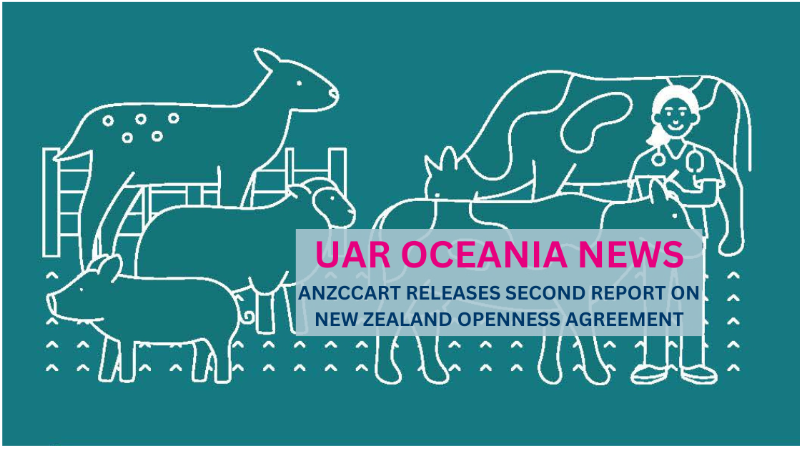Animal rights activism and extremism
While animal rights extremism is currently rare in the UK, it has ebbed and flowed over the last fifty years. In 1975, Singer released a seminal book, Animal liberation, which provided the moral basis for many new animal rights activists. This rise in activism was also accompanied in the UK with a rise in animal rights extremism spearheaded by the direct action front group, the Animal Liberation Front (ALF). Animal rights activism shifted its focus between animal research, farming and fur over the following decades.
During the 1990s and 2000s, there was a renewal of extremism against animal research facilities and their staff with the rise of the direct action group SHAC. In 1998 the British Government banned cosmetic testing and in 1999 Great Apes could no longer be used for research purposes. The animal rights extremism of the 2000s culminated in the grave-robbing of Gladys Hammond, the deceased grandmother of a family who ran a guinea pig breeding farm.
The public backlash, new police powers, and the formation of pro-research advocacy group Pro-Test resulted in a significant fall in illegal activity – almost to nothing. This was supported by a concerted effort by the scientific community to better communicate the work they did. However, legal protests against animal research continue to exist.
Books
The Animal Research War (Michael Conn and James Parker) provides an insight into the animal rights movement over the past century from the perspective of two research scientists. It looks into groups and individuals involved, as well as their motivations and influences.
- Conn, P.M. and Parker, J.V., 2008. The Animal Research War. New York: Palgrave Macmillan.
Animal Liberation (Peter Singer) was an immensely influential book which discussed the ethics of animal use (including animal research). It is often considered the forerunner to the animal liberation movement. This is, perhaps, the core piece of literature on animal rights philosophy.
- Singer, P., 1995. Animal Liberation. 2nd Ed. London: Pimlico.
Animal Warfare: The story of the Animal Liberation Front (David Jenshaw) provides a detailed history of the animal rights extremist front organisation, the Animal Liberation Front. It also discusses the rise of animal rights extremism since the 1960s, focusing on the UK.
- Henshaw, D., 1989. Animal Warfare: The story of the Animal Liberation Front. London: Fontana
The Brown Dog Affair (Peter Mason) investigates the story of a 1903 surgical demonstration on a dog which led to a libel case, a memorial statue to the dog, subsequent riots and finally a new statue over 70 years later.
- Mason, P., 1997. The Brown Dog Affair: the story of a monument that divided a nation. London: Two Sevens
A Rat is a Pig is a Dog is a Boy (Wesley J Smith) takes its title from a quote from PETA president, Ingrid Newkirk. A rat is a pig is a dog is a boy takes a look at animal rights activism in the UK and US, as well as the philosophies which drive it.
- Smith, W.J., 2009. A rat is a pig is a dog is a boy. New York: Encounter Books The Case for Animal Rights (Tom Reagan) is another major piece of philosophical writing which argues for animal rights on the basis of their similar cognitive abilities.
- Reagan, T., 1983. The Case for Animal Rights. Berkeley: University of California Press.
Online resources
Animal Research: Battle Scars (Daniel Cressey) looks at the impact of animal rights extremism on scientists involved in animal research. It includes a number of polls of researchers.
- Cressey, D., 2011. Animal Research: Battle Scars. Nature. [online] 23 February. Available at: http://www.nature.com/news/2011/110223/full/470452a.html
Pro-Test: Tackling Animal Rights in the UK (SR) is an essay follows the battle over the building of the Oxford University Biomedical Facility from 2005-2008. It covers the rise of the animal rights group SPEAK, and the student counter-movement, Pro-Test. It also covers some of the issues which helped change public opinion from 2006.
- Speaking of Research, 2008. Pro-Test Tackling Animal Rights in the UK. [online] Available at: http://speakingofresearch.com/about/the-uk-experience/
Time to act against animal rights protesters (Tony Blair) – was a front page article in the Sunday Telegraph written by then Prime Minister, Tony Blair, explaining why he was signing the People’s Petition in support of animal research and against animal rights extremism.
- Blair, T., 2006. Tony Blair: Time to act against animal rights protesters. The Telegraph. [online] 14 May. Available at: http://www.telegraph.co.uk/news/uknews/1518328/Tony-Blair-Time-to-act-against-animal-rights-protesters.html
The Animal Liberation Front FAQ (NAALPO) provides some insight into the Animal Liberation Front from their own perspective. It explains their views on direct action and extremism.
- North American Animal Liberation Press Office. Frequently Asked Questions About the North American Animal Liberation Press Office. [online] Available at: https://animalliberationpressoffice.org/NAALPO/f-a-q-s/
The Freedom of Speech Paradox (Tom Holder) – argues that threats to scientists by animal rights activists cannot be justified through freedom of speech. Holder compares the tactics of animal rights extremists to those of the anti-abortion movement.
- Holder, T., 2012. The Freedom of Speech Paradox. Speaking of Research. [blog] 16 Jan. Available at: http://speakingofresearch.com/2012/01/16/the-freedom-of-speech-paradox/
Bite Back (ALF) is a website providing a list of all direct action activities done in the name of animal rights. The website is often used as a mouthpiece for those wishing to take illegal activities under the branding of the Animal Liberation Front (ALF).
- Bite Back. News from the Frontlines. [online] Available at: http://www.directaction.info
ARE Information (ARE.info) is a website dedicated to providing the facts about animal rights extremism. It is a useful website for separating real and claimed incidents of animal rights activism.
- ARE Information. ARE Information. [online] Available at: http://animalrightsextremism.info/, this website contains some information in German, French, Italian, Swedish and Spanish.
Click on one of the links below to see other topics on animal research



